Glenrothes High School has upped its game over the last decade.
So much so that the Fife secondary climbed 19 places in our Tayside and Fife schools league between 2021 and 2023, to fifth out of 18 in the kingdom.
And it is has recently become the region’s first Gold Award winner in the SCQF’s School Ambassador programme.
That’s despite it having a high proportion of pupils from deprived areas – a demographic which tends to be coupled with poorer attainment.
“We are regularly punching above our weight,” said depute rector Alan Cumming.
The stats
While its building may be ageing – and funding for a replacement refused by the Scottish Government – it’s what’s going on inside Glenrothes High that really matters.
In 2020 26% of pupils left with five or more Highers or equivalent qualifications.
But just two years in 2022 39% did so.
Going further back, 34% gained five or more National 5s (or equivalent) in 2014 while 55% did the same last year.
The school also saw 97% of its 2021/22 leavers go on to positive destinations – eg. university, college, work, apprenticeships – above the Fife average of 95%.
Yet 44% of its pupils live in deprived areas.
Traditional and vocational
Key to its success says rector Avril McNeill is embracing the shift towards more vocational pathways alongside traditional subjects.
And the school tries to create bespoke timetables as much as it can for senior pupils, ensuring the education they are being given is the one they want.
Mr Cumming said: “There are some schools which have much fewer pupils living in areas of deprivation and we are performing better.
“If you get the right curriculum young people want to engage and they see the value in it.”
The school’s journey of improvement began in 2014, explained Mrs McNeill, shortly after Standard Grades had been replaced by National qualifications.
How it all started
She said: “We recognised that we probably needed to widen the curriculum and that the very traditional curriculum worked very well for about 40 to 50% of our kids.
“There was another 40 to 50% who wanted to go into the employment market or follow through with college, and Highers and Advanced Highers weren’t necessarily the right course for them.”
Fast forward to today and alongside classrooms where pupils are studying for Highers in English, mathematics, the sciences – even classics which is now a rarity – pupils are learning skills for the workplace.
Barista skills, sports leaders, childcare, engineering, software development, photography are just some of the options available.
Grow, Eat, Make, Sell (GEMS) – a food growing, cooking and selling programme – offers a variety of qualifications suitable for the hospitality industry.
And these aren’t just for those who want to go directly into work. They could help future students fund university with a part-time job, perhaps in a coffee shop or referring football matches.
The school works with the Developing Skills for Work programme, Fife College and SRUC Elmwood and offers Foundation Apprenticeship and National Progression Award routes.
For example, a pupil can start studying childcare in S3 and while still at school embark on a Foundation Apprenticeship, which is the same level qualification as a Higher.
Mrs McNeill said: “They are able to come straight out of school at 17 or 18 and get a job in a school as a PSA (pupil support assistant) earning £20,000 a year.”
Mr Cumming said: “One of the key things in all of this has been the creativity. We look at the individual needs of each young person and ask ‘what’s your pathway and what can we do?’
“There has been a lot of work and a few twists and turns along the way but ultimately it has had a huge impact on our attainment and positive destinations.”
Mrs McNeill said: “We’ve taken pathways for young people and made them almost bespoke.”
Highlighting how some pupils spend part of their timetable in college, Peter Haggerty, principal teacher for technologies and raising attainment, said: “We have one kid who wasn’t a traditionalist but was sitting in social subjects and not engaging.
“Now he’s doing car mechanics at college, loving it and excelling.”
We are now a much more inclusive school; we have a curriculum that suits as many people as it possibly can.”
Alan Cumming, depute rector
And its that approach which earned Glenrothes High School its SCQF (Scottish Credit and Qualifications Framework) School Ambassador award – giving equality to vocational and academic qualifications.
Explaining where it all began, Mrs McNeill said: “We used self evaluation and labour market information, we spoke to young people, we spoke to employers, we spoke to parents.
“We did a huge piece of work around what jobs were available and we built the curriculum around that to make sure we were meeting the needs of young people and filling labour marker expectations.
“We wanted them to get jobs.”
Mr Cumming said: “We are now a much more inclusive school; we have a curriculum that suits as many people as it possibly can.”
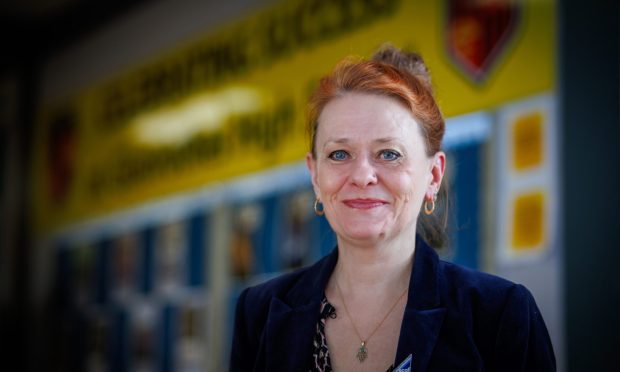
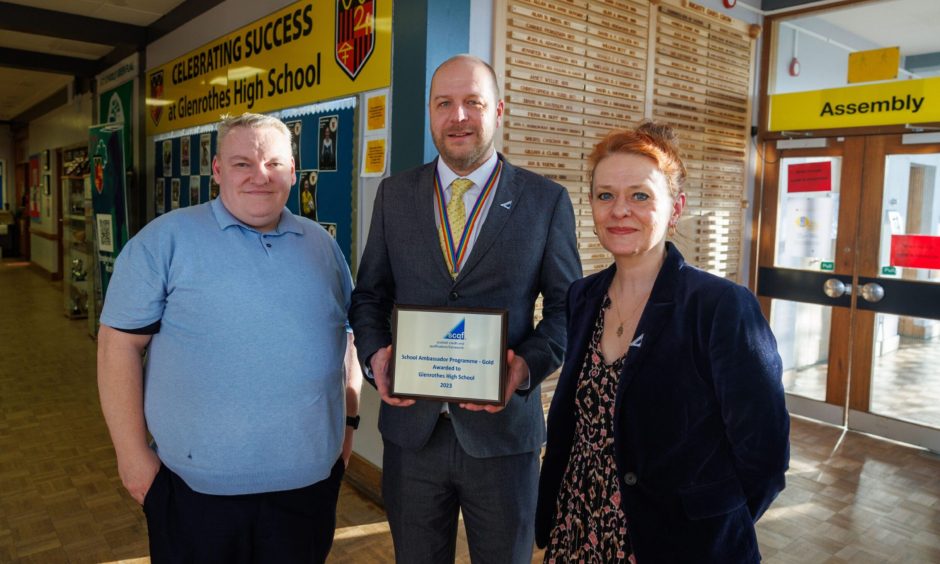
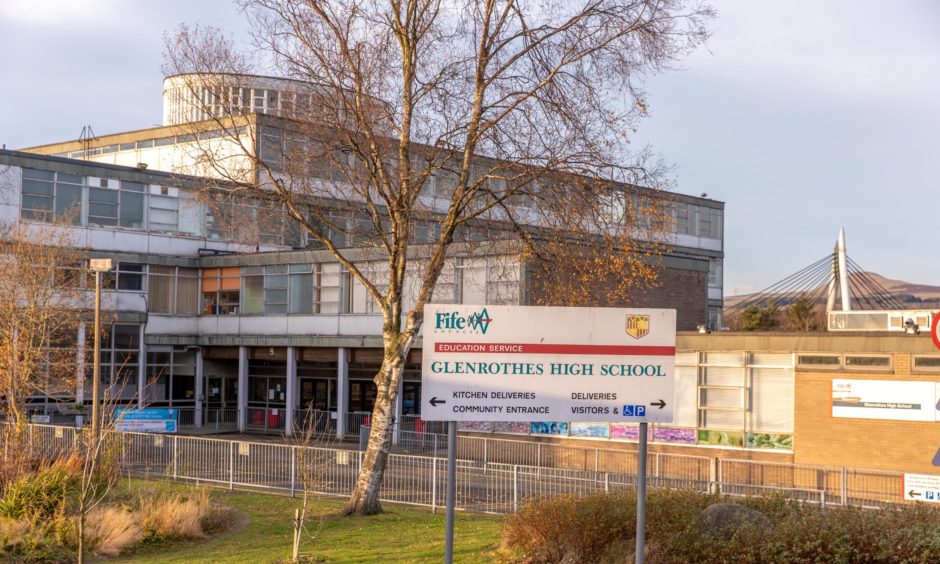
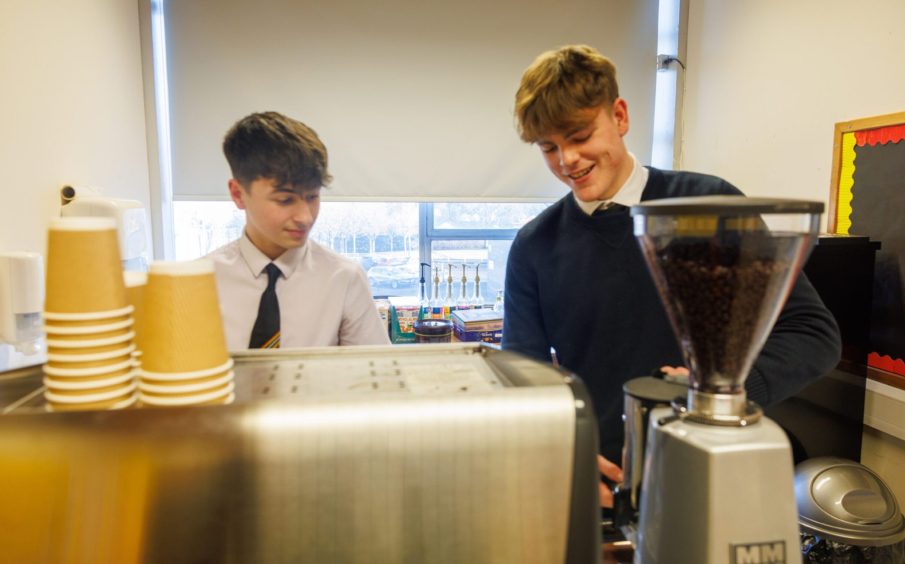

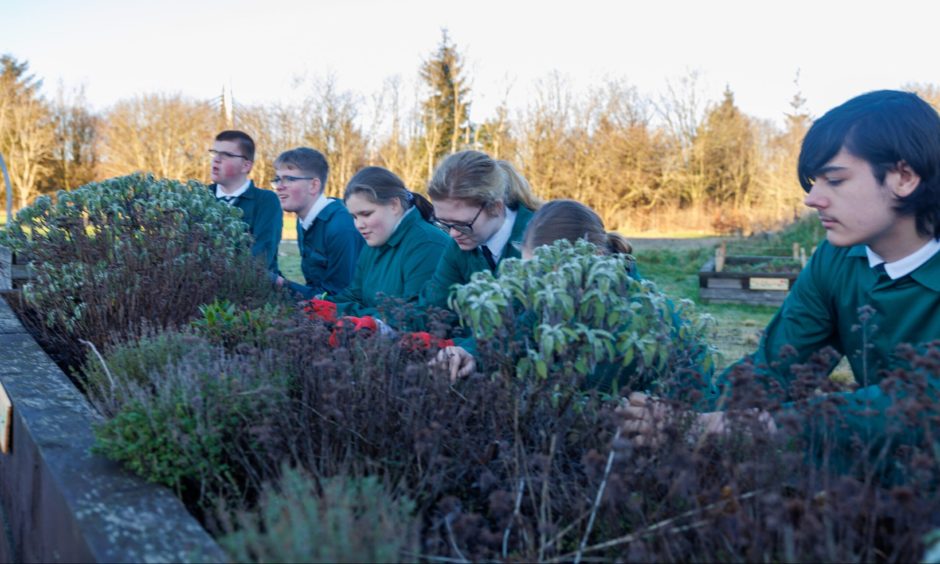







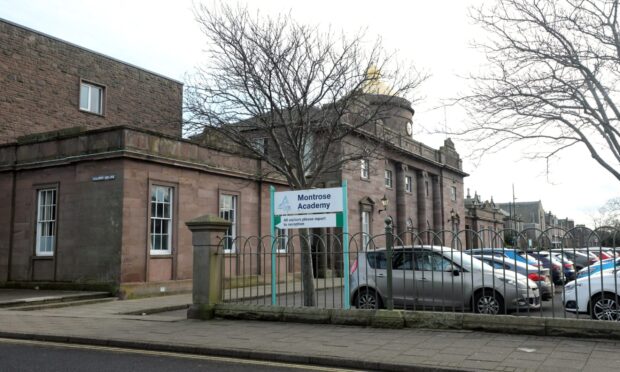
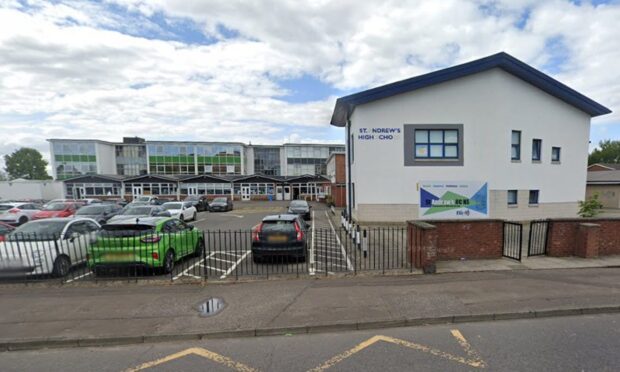

Conversation